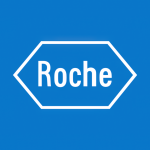Welcome to our dedicated page for Roche Hldg news (Ticker: RHHBY), a resource for investors and traders seeking the latest updates and insights on Roche Hldg stock.
Roche Holding Ltd/ADR (RHHBY) is linked to a stream of news that reflects the company’s activities in biotechnology, pharmaceuticals and diagnostics. Recent announcements from Roche and its U.S. affiliate Genentech highlight regulatory approvals, late‑stage clinical trial results, new diagnostic platforms and agreements related to access and manufacturing.
Investors and healthcare observers following RHHBY news will see updates on oncology and haematology programmes, such as the U.S. Food and Drug Administration’s accelerated approval of Lunsumio VELO, a subcutaneous CD20xCD3 bispecific antibody for relapsed or refractory follicular lymphoma after at least two prior lines of systemic therapy. News also covers Phase III data for the investigational oral SERD giredestrant in ER‑positive early‑stage breast cancer, as well as new data on Lunsumio combinations and long‑term outcomes in lymphomas presented at major scientific meetings.
On the diagnostics side, Roche has reported the U.S. launch of next‑generation cobas 6800/8800 systems and software upgrades, CE Mark approval for its cobas Mass Spec solution reagent pack for antibiotics drug monitoring, and CE Mark for the cobas BV/CV assay for bacterial vaginosis and candida vaginitis. These stories illustrate how the company is expanding its in‑vitro diagnostic menu and enhancing laboratory efficiency.
Additional news items include European Commission approval of Gazyva/Gazyvaro for lupus nephritis and Genentech’s agreement with the U.S. government addressing prescription drug costs and direct‑to‑patient programmes. For users of this page, the RHHBY news feed offers a central place to review such regulatory milestones, clinical trial readouts, product launches and policy‑related developments associated with Roche and the Roche Group.
Summary not available.
Roche (OTCQX: RHHBY) received EU marketing authorization for Ronapreve™ (casirivimab and imdevimab) to treat and prevent COVID-19 in certain patients. This approval follows prior endorsements in Japan, the UK, and Australia. The decision was based on positive clinical trial data, indicating Ronapreve reduces hospitalization risk by 70% and symptomatic COVID-19 infections by 81%. Amid rising COVID-19 cases in Europe, Roche aims to collaborate with global regulators to expand Ronapreve's use for hospitalized patients.
Roche announced a positive recommendation from the EMA’s CHMP for the COVID-19 treatment Ronapreve (casirivimab and imdevimab). The antibody combination is recommended for use in adults and adolescents at risk of severe disease and for prevention post-exposure. Data from the REGN-COV 2067 and REGN-COV 2069 studies indicated a 70% reduction in hospitalizations or death and an 81% reduction in symptomatic infections, respectively. The final approval by the European Commission is awaited. Emergency authorizations are already in place in other regions.
Roche and Novartis have reached an agreement for Roche to repurchase 53.3 million shares from Novartis for approximately CHF 19 billion, at a price of CHF 356.9341 per share. The repurchase, subject to approval at an Extraordinary General Meeting on 26 November 2021, aims to enhance Roche's strategic flexibility and increase the free float from 16.6% to 24.9%. This move does not change control dynamics as family shareholders maintain majority voting rights. Roche projects mid-single-digit sales growth and aims to increase its dividend for 2021.
Roche's recent data from the IMPACT trial highlights the benefits of using the CINtec PLUS Cytology test for women at higher risk of cervical cancer. The trial, involving over 35,000 women, demonstrated that this dual-stain biomarker technology significantly outperforms Pap cytology in detecting cervical pre-cancer in HPV-positive women. With over 604,000 cervical cancer diagnoses globally each year, Roche aims to provide clinicians with effective tools to combat this preventable disease, emphasizing the importance of HPV screening.
Roche and Zur Rose Group have partnered to enhance diabetes management for 60 million Europeans living with the condition. The collaboration aims to provide people with diabetes and their caregivers with an integrated suite of services, including telemedicine, self-management products, and data visualization tools. Launching first in Germany in 2022, the program will target type 2 diabetes, which comprises 90% of cases. This venture positions Roche as a leader in personalized diabetes care, leveraging technology to improve patient outcomes and streamline care processes.
Roche has launched the AVENIO Tumor Tissue Comprehensive Genomic Profiling (CGP) Kit, marking a collaboration with Foundation Medicine. This first-of-its-kind kit allows research scientists to conduct genomic profiling in-house, facilitating deeper insights into cancer biology. The product aims to enhance personalized healthcare by broadening access to CGP, which will play a pivotal role in future clinical decision-making. The kit can analyze 324 cancer-related genes, completing the workflow in just five days, and will be available globally.
Roche announced FDA approval for Susvimo (ranibizumab injection), the first alternative to monthly eye injections for treating neovascular age-related macular degeneration (nAMD) in 15 years. Susvimo's implant allows for continuous drug delivery, potentially reducing treatment frequency to just two times a year. It serves approximately 20 million global nAMD patients. The FDA's decision was based on the positive Archway study, showing Susvimo maintained vision gains similar to monthly injections, although it posed a higher risk of endophthalmitis.
Roche has received FDA approval for the VENTANA PD-L1 (SP263) Assay as a companion diagnostic for Tecentriq in non-small cell lung cancer (NSCLC). This test identifies patients likely to benefit from Tecentriq after surgery and chemotherapy, aiming to improve personalized healthcare. The IMpower010 study indicated a 34% reduction in disease recurrence among patients with PD-L1 expression. Lung cancer accounts for over 2.2 million new diagnoses globally each year, reinforcing the importance of such advancements in treatment options.
Roche reported an 8% increase in group sales to CHF 46.7 billion for the first nine months of 2021, driven by strong demand for COVID-19 tests and growth in recently launched medicines. The Diagnostics Division experienced a remarkable 39% growth in sales, while the Pharmaceuticals Division sales remained stable. Key highlights included FDA approvals for Tecentriq and faricimab, and Breakthrough Therapy Designation for gantenerumab. Roche also raised its sales outlook for 2021, anticipating mid-single digit growth. The company's robust product pipeline includes 17 compounds in late-stage development.

